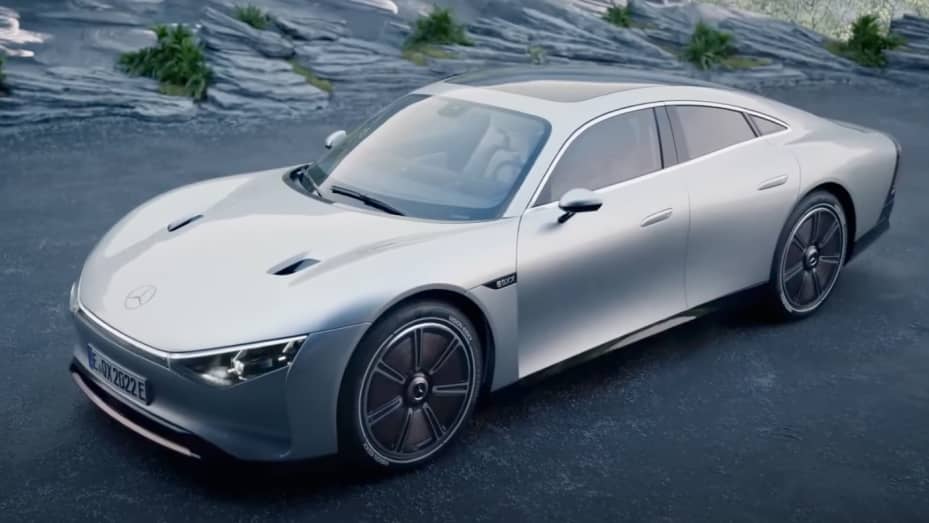
Daimler has released details of a concept electric vehicle which uses solar technology and bio-based materials, with the German automotive giant saying it has a range of over 1,000 kilometers (around 621 miles) on one charge.
The Vision EQXX has 117 roof-based solar cells — the idea is that they can help to boost the car’s range — while the vehicle’s interior incorporates materials including a leather alternative called Mylo.
Mylo is produced using mycelium, which Daimler described as being “the underground rootlike structure of mushrooms.”
“It is certified bio-based, which means it is made predominantly from renewable ingredients found in nature,” Daimler said. Other materials used in the car include a “cactus-based biomaterial” called Deserttex and carpets made from bamboo fiber.
In a statement issued Monday, Markus Schafer, Daimler’s chief technology officer responsible for development and procurement, said that the technology program behind the concept vehicle would “define and enable future Mercedes-Benz models and features.”
Schafer had previously announced details of the vehicle’s range in a LinkedIn post toward the end of last year. On Monday, Daimler said the range figures were “preliminary and based on digital simulations in real-life traffic conditions.”
If an electric vehicle were able to travel over 621 miles on a single charge in real-world conditions, it would help dispel concerns about range anxiety. The term refers to the idea that EVs aren’t able to undertake long journeys without losing power and getting stranded.
As technology develops, the range of electric vehicles is starting to grow. Tesla says its Model S Plaid has an estimated range of 396 miles, while Lucid has said the Lucid Air Dream Edition Range has “an official EPA rating of 520 miles of range.”
The Vision EQXX represents the latest example of how car companies are looking to use different materials in their vehicles.
In September, Volvo Cars announced it wanted all the models it sells to be leather-free by 2030. The Swedish firm also said it wanted a quarter of the material used in its new cars to “consist of recycled and bio-based content” by 2025.
In 2019, Elon Musk’s Tesla said the interior of its Model 3 was “100% leather-free.” Elsewhere Porsche — a brand owned by the Volkswagen Group — offers customers a leather-free option for the interior of the all-electric Taycan.
[“source=cnbc”]




